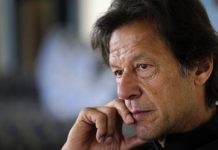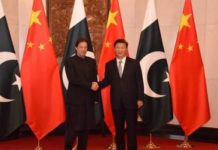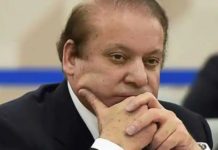As economies reevaluate their trading partners based on economic and national security concerns following disruptions such as Covid-19 pandemic and Russia’s invasion of Ukraine, global economic ties are changing in ways not seen since the end of the Cold War, First Deputy Managing Director at International Monetary Fund (IMF) Gita Gopinath has said.
Speaking at the Stanford Institute for Economic Policy Research on the future of the International Monetary System, Gopinath, said there has been a marked increase in gold purchases by central banks during 2022-23 driven by concerns about sanctions risk especially by China bloc countries.
“The share of gold in the foreign exchange (FX) reserves of the China bloc has been rising since 2015—a trend not exclusively driven by China and Russia. Importantly, during the same period, the share of gold in FX reserves of countries in the US bloc has been broadly stable,” she said.
“This suggests that gold purchases by some central banks may have been driven by concerns about sanctions risk. This is consistent with a recent IMF study confirming that FX reserve managers tend to increase gold holdings to hedge against economic uncertainty and geopolitical including sanctions risk,” Gopinath added.
Notably, the share of gold in China’s total FX reserves has increased from less than 2 percent in 2015 to 4.3 percent in 2023.
The Indian-origin economist further pointed out that the recalibration of trade relations, is also reshaping currency composition of trade finance, especially for China-leaning countries. The increasing use of Chinese currency renminbi (RMB) may have been supported by the Cross-Border Interbank Payments System (CIPS)—a system launched by the People’s Bank of China which offers clearing and settlement services for cross-border transactions in RMB.
In July 2022, the Reserve Bank of India had also launched a framework to trade in domestic currency and India ever since has been pushing for trade in domestic currency. In December 2023, India made its first-ever payment in rupees for crude oil purchased from the United Arab Emirates (UAE).
During her speech, Gopinath compared current trade fragmentation with that of the Cold War period stating that trade between the rival Western and Eastern blocs was significantly depressed during the Cold War, relative to trade within these blocs.
“Thus far, today’s fragmentation is not significantly different from the initial years of the Cold War. However, compared to the average ‘between-bloc trade shortfall’ during the entire Cold War period, fragmentation so far is an order of magnitude smaller,” she said.
Explaining her cause of concern during the current period, Gopinath said, trade fragmentation is much more costly this time around because unlike the start of the Cold War when goods trade to GDP was 16 percent, now that ratio is 45 percent.
“Moreover, while back then countries within a bloc were taking off trade restrictions, now we are in an environment of growing protectionism with several countries turning inward. The potential role of non-aligned countries in the current trade frictions also makes the situation today different from the Cold War experience,” she said.
The evidence suggests non-aligned countries(such as India) did not play an important role serving as connectors between rival blocs during the Cold War—likely because they had a much smaller economic footprint and global supply chains were not yet developed but today have greater economic and diplomatic heft and are much more integrated into the global economy and their role as connectors this time round can help attenuate some of the costs of fragmentation, she added.










